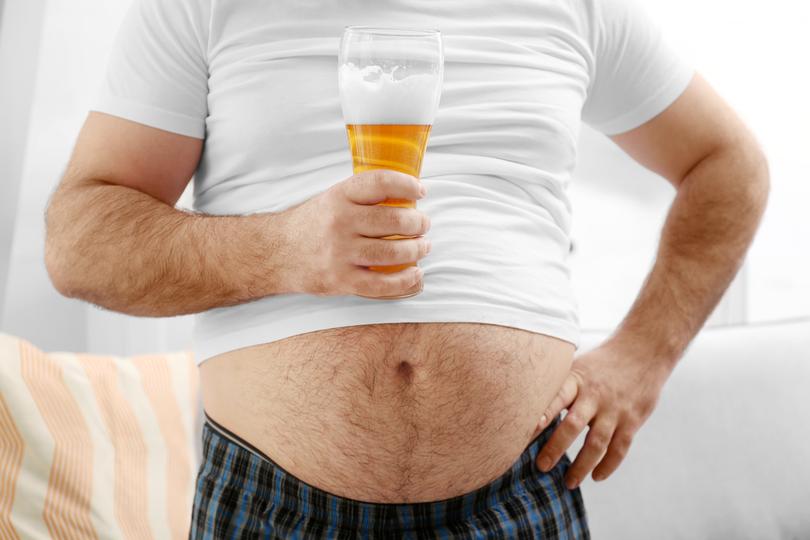SARAH DI LORENZO: Alcohol, the best and worst of the mixed messages and what it does to your brain
SARAH DI LORENZO: Despite the mixed messages about alcohol consumption, millions still drink it regularly. But you may lay off the sauce if you knew what it was actually doing to you.

There is so much mixed information about alcohol consumption and what is recommended.
The advice ranges from one standard drink a day for women and two for men to red wine is good for us.
Then you read there is no safe amount of alcohol, it should be completely avoided according to the WHO (World Health Organisation).
Sign up to The Nightly's newsletters.
Get the first look at the digital newspaper, curated daily stories and breaking headlines delivered to your inbox.
By continuing you agree to our Terms and Privacy Policy.But regardless of this information, people continue to drink alcohol.
In fact, 2.3 billion of us globally drink alcohol and in Australia, 77 per cent of us drink to socialise and relax.

When it comes to alcohol there are social pressures for many of us. Who we surround ourselves with has a big influence on our choices.
But we all are well aware too much alcohol has a negative effect on physical and mental health, decision-making processes, the body and the brain.
When it comes to our brain, alcohol has a toxic effect on the central nervous system and may cause brain impairment.
Alcohol can lead to problems with memory and impaired judgment. Heavy drinking slows the cerebral cortex where we process information.
Cirrhosis of the liver, which is scarring of the liver from long-term drinking can also be linked to brain damage.
ARBI (alcohol-related brain impairment) are the problems caused by alcohol abuse such as learning, memory, thinking abilities, and coordination of the body.
How damaging a person is depends on age, nutrition, alcohol consumption and gender.
When it comes to the developing brain, drinking can impair how an adolescent brain develops increasing risks of depression, low self-esteem and anxiety weakening emotional regulation.
Alcohol can cause both long and short-term effects on our body.
The short-term effects like hangovers, headaches and feeling tipsy don’t last long and are not the problem when it comes to drinking.
The truth is all recent research has indicated that any amount of alcohol has health consequences, unlike in the past where moderation was the guideline.
Over time, though, like all things, alcohol will take its toll.
Our body, in the short-term, experiences impulsive behaviour, loss of coordination, head pain, trouble focusing, slurred speech, feeling relaxed, changes in mood, vomiting, nausea, lowered inhibitions, dehydration and loss of consciousness.
Long-term consequences include changes in appetite and weight, problems in personal life, irritability, anxiety, difficulty focusing, weakened immunity, insomnia, changes in libido and trouble concentrating.

But also, drinking alcohol increases the possibility of developing pancreatitis, inflammatory damage, cirrhosis of the liver, hypoglycemia and hyperglycemia, and impacts the central nervous system as well as, over time, numbing and tingling of the hands and feet.
As well as damage to the digestive tract leading to malnutrition and IBS (irritable bowel syndrome), trouble with the circulatory system, infertility, damage to the foetus in pregnancy, muscle weakness, weakened immunity as well there are psychological impacts.
In the worst-case scenario alcoholism and early death.
Regardless of all the studies and research, the reality is humans still continue to consume alcohol and this won’t change.
As a clinical nutritionist and realist, I see this all the time.
I will always encourage people to stop drinking alcohol. If they choose not to, I have some guidelines.
For the moderate drinkers who enjoy alcohol and don’t want to change, I suggest a minimum of four nights a week alcohol-free for the body to have a rest.
I suggest avoiding cocktails and adding soft drinks to spirits and suggest keeping to seven units per week.
I am about solutions and would rather work with people drinking as they are still trying to achieve a health goal.
For the heavy drinkers I recommend they do one month alcohol-free to show them how much better they will feel, I never overwhelm them, and then we reassess after that month.
This is why events like Dry July are such a great initiative. So let’s embrace Dry July.
